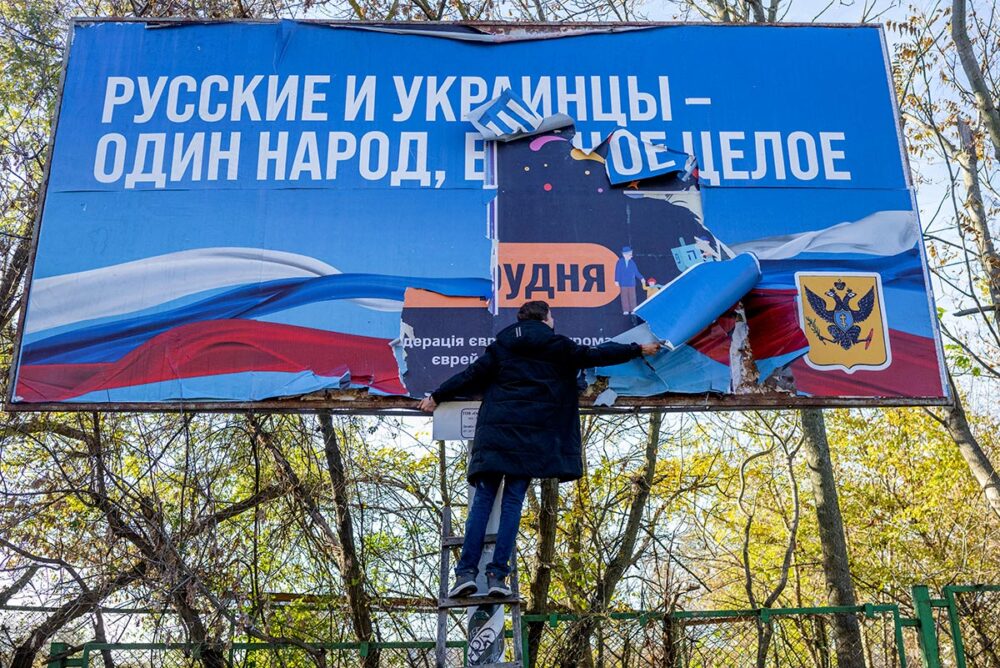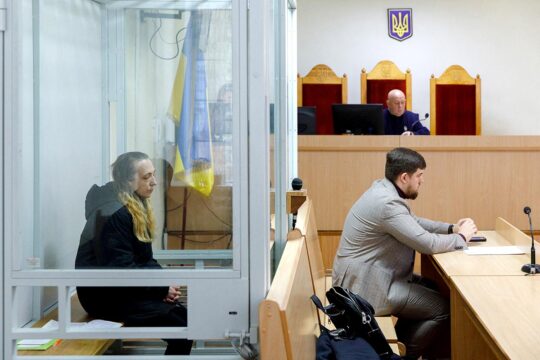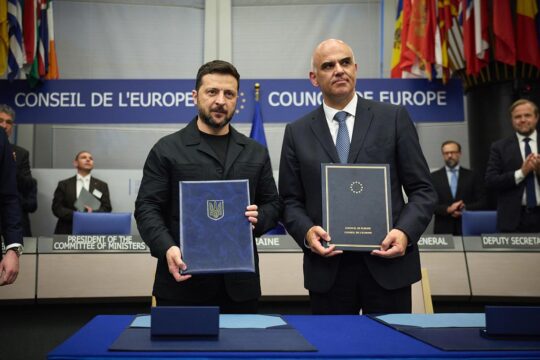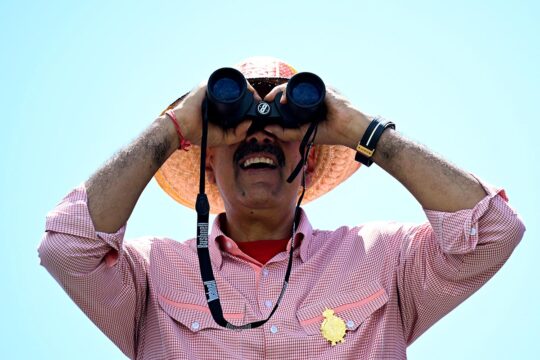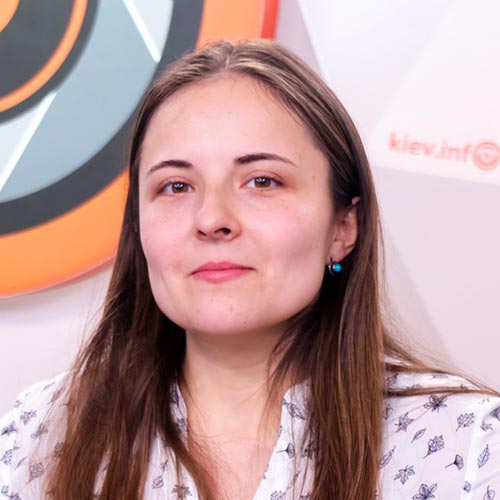In the dock of the Shevchenkivskyi District Court of Kyiv, Ukraine’s capital city, stood Serhii Ostapenko, a representative of the Korabelnyi district council of Kherson, a regional capital in the south of the country, who belonged to the pro-Russian party “Opposition Platform - For Life” and worked for Kherson's city council. His trial began more than a year ago, on charges of collaboration and holding a position in an illegal law enforcement agency.
On July 6, 2022, in the middle of the 8-month occupation of Kherson by the Russian army, Ostapenko became an acting operative of the occupation police who assigned him to its Economic Crimes Unit in Kherson. A month and a half later, on August 19, 2022, Ostapenko resigned from this position and worked for a company created by the occupation authorities that exported Ukrainian grain to the Russian Federation until the city was liberated in November 2022.
There is no doubt that Ostapenko worked for the occupation police: his name appeared in many documents left by this police force. A flash drive, seized from him during a search contained draft documents written in Russian on behalf of an “operative” and based on Russian law. Moreover, on his cell phone, he kept a photo of his occupation police ID and shoulder straps, a photo of him in a bulletproof vest with a holster and a police baton, and a photo of an object resembling a Makarov pistol.
Ostapenko, who testified exclusively in Russian, did not deny working for the occupation police, but tried to convince the court that it was under pressure, claiming he was afraid for his elderly father, after FSB [Russia’s intelligence services] officers threatened him. His father came from Kherson to see his son during one of the hearings. However, he did not testify.
“We were mostly helping citizens”
Ostapenko claimed he took the position under duress, but he also expressed his belief that Russian law enforcement agencies in Kherson were established only after the occupiers held a referendum on annexation to the Russian Federation. During the summer of 2022, it was allegedly a self-organized law enforcement agency “establishing a dialogue between citizens and the military administration”. The defence argued that Ostapenko actually contributed to the protection of the rights of citizens in the occupied territory.
“We were mostly helping citizens. Because there was no one else. Isn’t it better in the given situation to have a local person holding this position, someone who knows everything around and can be helpful in some way, rather than someone from Russia?” Ostapenko asked. According to him, he knew nothing about any punitive measures against Ukrainians, because his unit was not responsible for political affairs, but only for maintaining public order.
During the interrogation, the defence lawyer asked whether Ukrainian law enforcement agencies were still present in Kherson on February 24. Ostapenko responded that they had left the city on the first day of the invasion.
“They fled during the day, I could see it while I was on my way to work in the city council. Units of the National Guard, SBU [Ukraine’s security services] and police were being evacuated,” Ostapenko testified.
“The ones who fled were the katsaps [pejorative for “Russians”] in November 2022. Choose your words, please,” the judge intervened.
“No offence... It was fleeing. At 4 o’clock I received a call from a classmate from the SBU: ‘It’s started, let’s take off’. I’m in local government. I don’t have orders from Kyiv to run away from here.”
“There’s nowhere you can hide”
During trial, Ostapenko was confronted to several witnesses. One of them, a commercial director of a local company, accused Ostapenko of threatening him as he was leaving the city. “He said: ‘We will meet, don’t think you can hide in Odesa. We will be in Odesa soon. There’s nowhere you can hide. You still have your apartment here, you still have your property’. I hung up the phone,” alleged the witness. Ostapenko denied saying such things and assured the witness was lying.
Another witness, a woman, testified that on July 15, 2022 she saw and recognized Ostapenko as part of an investigation unit on the murder of a civilian. She said he wore civilian clothes but carried a gun. Ostapenko did not deny his presence at the scene but said that “people were willing to communicate” with the occupation police about that murder case.
Another witness was an officer of SBU in the Kherson oblast who went to school with Ostapenko and maintained friendly ties with him. He said that during the occupation, he and Ostapenko did not see each other, yet exchanged messages. On February 24, 2022, following his SBU superiors' orders, he immediately left Kherson. Knowing that Ostapenko had not left, the SBU officer texted him in early March asking if he could go and see if there were Russian soldiers at a specific address, but Ostapenko refused.
In either June or July, Ostapenko texted his friend and asked his opinion on how much longer this would last. The SBU officer encouraged him to leave. Ostapenko replied that he was unable to leave. After that, they stopped communicating, the witness said. The defence lawyer asked if it was true that the SBU officer’s father, who remained in occupied Kherson, had been detained by the Russian military and that Ostapenko had offered his help. But the witness denied it, saying that there was no detention, just a one-time search during which his father was taken for interrogation. Ostapenko tried to challenge the witness.
“Do you remember what I wrote when we were texting? ‘It’s over, the FSB is already spying through my phone’. You then sent me ‘+’ and deleted our Telegram correspondence,” Ostapenko said.
The SBU officer stated that he had no memory of that.
“Wasn’t it you who texted me that your father was beaten?”
“My father was beaten? I did not write that.” After hearing this, Ostapenko said it was pointless to ask further questions.
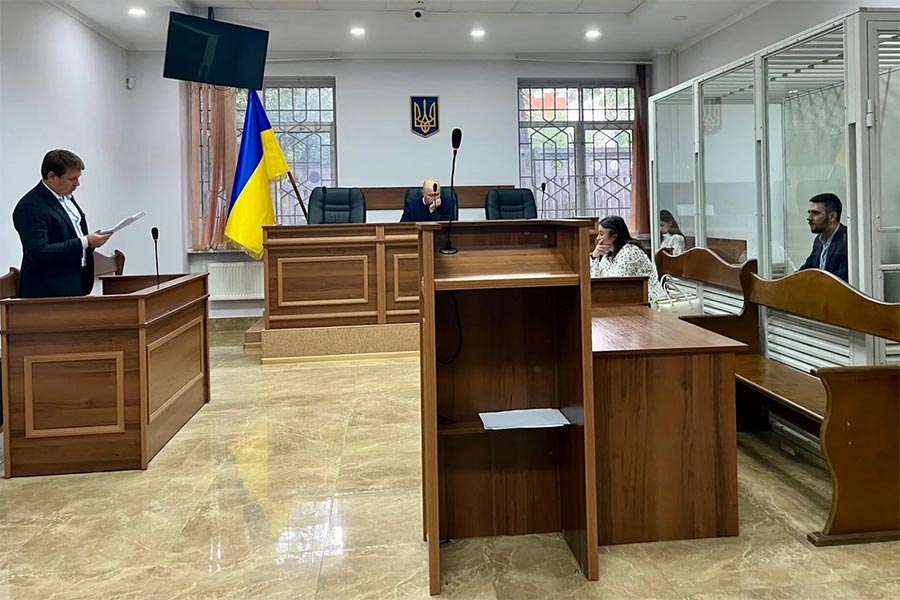
Catching the eye of Russian special services
Ostapenko told the court that during the occupation of the city, the head of the district council, in which he was a party representative, posted a message and suggested engaging in humanitarian work. Later, he made lists of people who needed insulin, travelled around the city and helped everyone who asked him. Allegedly, he was contacted by the Russian special services for the first time in mid-March.
According to the accused, his encounter with the FSB was an unfortunate coincidence. He caught the eye of the Russian special services when he visited his friend, who lived in a house across the street from the occupied SBU building. “They found it interesting that I was a Korabelnyi District Council representative from Opposition Platform - For Life. They also saw my credentials as a city council employee, so they were very eager to have a word with me.”
Using the excuse that it was his friend’s birthday, Ostapenko said he convinced the Russians to let him go. But three weeks later, an FSB officer by the name of Makar texted him via Telegram and scheduled a meeting in a park. During the face-to-face conversation, the officer asked him who he was, his occupation, his thoughts about the situation, and whether there were “nazis” in the city. He asked what the mayor thought about all this, but Ostapenko replied that he knew nothing about the mayor. The FSB officer allowed him to leave but continued to text and organize meetings, also introducing Ostapenko to his partner Fedor.
“It’s time to decide which side you’re on”
By the end of May, the conversation became more specific, and according to Ostapenko, that's when the two FSB officers began to threaten him. “He said: ‘It’s time to decide which side you’re on. You are from the OPFL party, looks like you have already made up your mind’. He insinuated that he knew who my father was, and that he worked at the university’s physics and mathematics faculty. Fedor said in an ultimatum manner that it was imperative to go to work, otherwise there would be problems. There was no physical pressure, but he explicitly made it clear that if I didn’t, there would be problems, and my father would get in trouble.”
According to the accused’s testimony, FSB officer Fedor said that he knew Ostapenko had the required education - he graduated from the police school of Kharkiv University of Internal Affairs - and that the occupiers were in great need of such personnel, as the situation in the city was tense. Ostapenko was therefore expected to come to the Suvorov district police station within a week.
Ostapenko said he complied. He had a brief interview before being taken to an office where there were several representatives of the “Cyclone” unit of the “DNR Ministry of Internal Affairs”, the Donetsk separatist authorities. One of them asked where Ostapenko lived and where it would be more convenient for him to work. Ostapenko replied that it was up to them to decide. In July, they chose to assign him to an investigative unit in Kherson, the Economic Crimes Unit that would respond to incidents such as thefts, rapes, murders, and also investigate the black market of humanitarian aid in the city.
By mid-August, Dmytro Kovalenko, deputy director of the Kherson Grain Company, which was seized by the Russian authorities in particular to sell the abandoned grain of Ukrainian producers, reported to the police the theft of a battery from his car. Kovalenko had allegedly noticed that Ostapenko was not comfortable in the occupation police and was there against his will, so he suggested Ostapenko come to work for him. According to Ostapenko, he arranged his transfer to the grain company as a lawyer.
Conflicting versions of the arrest
According to Ostapenko, after the de-occupation, he approached the SBU in Kherson on November 13, 2022 and said he wanted to talk to his SBU classmate. He said police and SBU officers interrogated him on the premises of a local store. “They blindfolded me with tape and staged a shooting,” he said, adding that he spent the night in this store. He told them he was forced to work during the occupation but when his classmate came to see him the next day, he told Ostapenko he was in deep trouble and denied exchanging any text messages with him. Then another SBU officer recorded his interrogation on video. Three days later, on November 16, Ostapenko ended up in Mykolaiv, where he was interrogated again. On that evening he was brought to Kyiv.
However, officially, the circumstances of his arrest are very different. According to the prosecutor, Ostapenko was not detained on November 13 but was only handed a summons to meet an investigator in Mykolaiv. He allegedly came to Mykolaiv of his own accord and was detained there after a conversation with the investigator. The prosecutor insisted on this version of events and also pointed out that the defence lawyer never complained about violations or physical injuries during the pre-trial investigation and the establishment of preventive measures. Ostapenko signed the detention protocol on November 16 without any remarks. He said he met his lawyer for the first time after signing and talked to him only for 20 or 30 seconds in the presence of officers, in the SBU building. He claimed he was very tired and signed it just to be allowed to get some sleep.
“Fleeing seemed to be the wrong thing to do”
“If you could go back in time, what would you do?” asked the judge.
“I would probably follow the advice of my classmate and flee the city, like the police, like the SBU and everyone else. And I wouldn’t ask anyone. My superiors did not give me the instruction to flee the city. The head of the district council said that, on the contrary, those who stayed behind made the right decision, as it was necessary to help. To me, fleeing seemed to be the wrong thing to do at that time,” Ostapenko replied.
Ostapenko also reminded the court that he cooperated with Ukrainian law enforcement: he handed over documents and flash drives related to the work of the Kherson Grain Company. Also, upon the defence’s insistence, the prosecutor showed the court documents about Ostapenko’s participation in the identification of several occupation police officers - some of them have already been handed over to the court or are being tried in absentia.
Ostapenko's lawyer asked for his client to be acquitted and highlighted that the witnesses interviewed in court did not testify that Ostapenko had coerced people, showed support for the occupiers, advocated for joining the Russian Federation or handed over Ukrainian citizens to the FSB. He also drew attention to the fact that many civilians who did not obey the will of the Russian aggressor during the occupation were killed. Thus, he told the court, because of the threat to the life and health of people during the occupation the possibility of a voluntary collaboration with the enemy was to be ruled out.
Despite the lawyer’s plea for his client, the court found Ostapenko guilty and sentenced him to 14 years in prison, an even longer term than the one requested by the prosecution.
This report is part of our coverage of war crimes justice produced in partnership with Ukrainian journalists. A first version of this article was published on the "Sudovyi Reporter" website.


